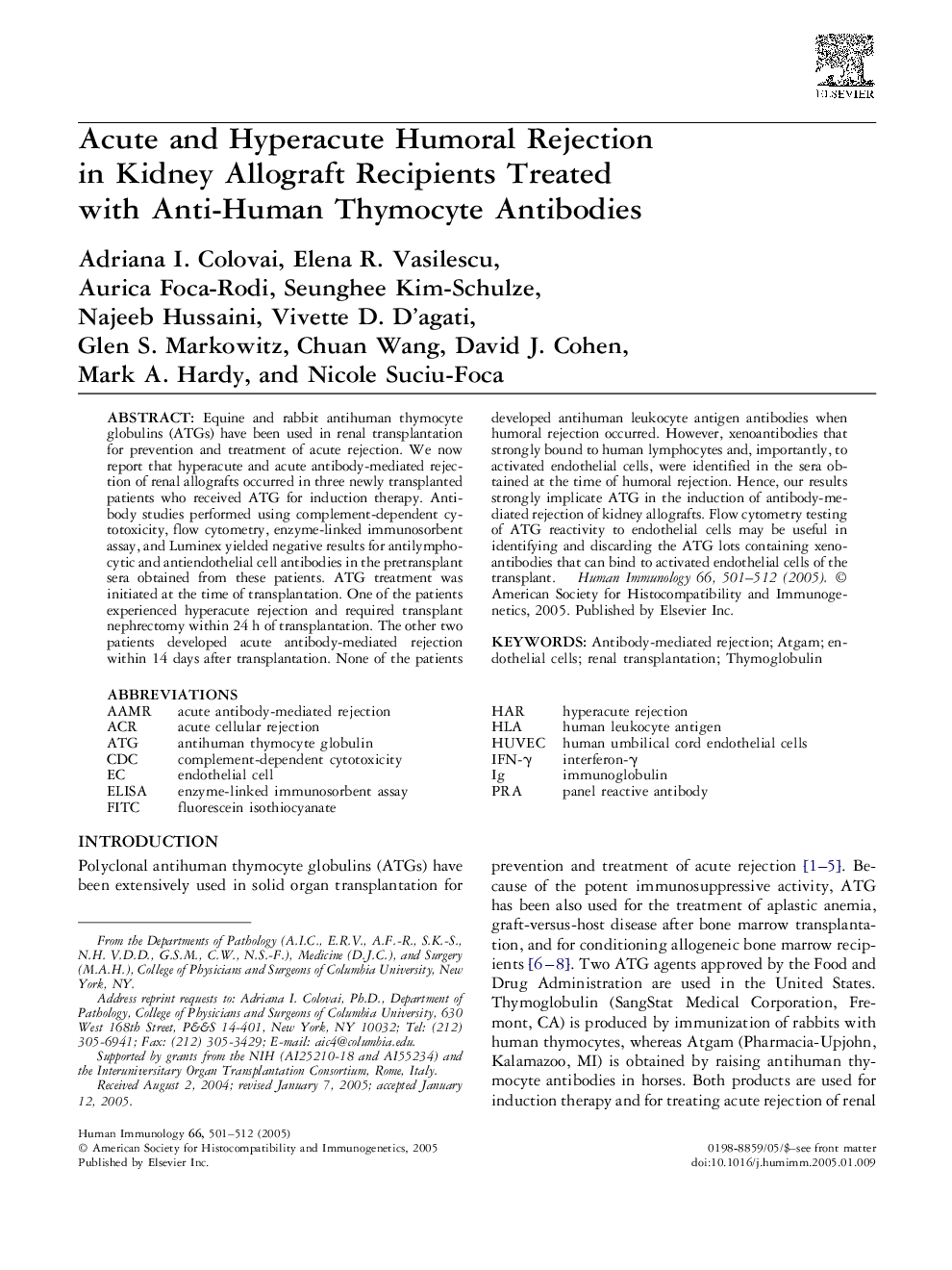| Article ID | Journal | Published Year | Pages | File Type |
|---|---|---|---|---|
| 9264191 | Human Immunology | 2005 | 12 Pages |
Abstract
Equine and rabbit antihuman thymocyte globulins (ATGs) have been used in renal transplantation for prevention and treatment of acute rejection. We now report that hyperacute and acute antibody-mediated rejection of renal allografts occurred in three newly transplanted patients who received ATG for induction therapy. Antibody studies performed using complement-dependent cytotoxicity, flow cytometry, enzyme-linked immunosorbent assay, and Luminex yielded negative results for antilymphocytic and antiendothelial cell antibodies in the pretransplant sera obtained from these patients. ATG treatment was initiated at the time of transplantation. One of the patients experienced hyperacute rejection and required transplant nephrectomy within 24 h of transplantation. The other two patients developed acute antibody-mediated rejection within 14 days after transplantation. None of the patients developed antihuman leukocyte antigen antibodies when humoral rejection occurred. However, xenoantibodies that strongly bound to human lymphocytes and, importantly, to activated endothelial cells, were identified in the sera obtained at the time of humoral rejection. Hence, our results strongly implicate ATG in the induction of antibody-mediated rejection of kidney allografts. Flow cytometry testing of ATG reactivity to endothelial cells may be useful in identifying and discarding the ATG lots containing xenoantibodies that can bind to activated endothelial cells of the transplant.
Keywords
ATGAMFITCCDCPRAHUVECACRIFN-γATGPanel reactive antibodyHuman leukocyte antigenHLAHARimmunoglobulin interferon-γELISAEnzyme-linked immunosorbent assayThymoglobulinantibody-mediated rejectionAcute cellular rejectionhyperacute rejectionEndothelial cellEndothelial cellscomplement-dependent cytotoxicityfluorescein isothiocyanateRenal transplantation
Related Topics
Life Sciences
Immunology and Microbiology
Immunology
Authors
Adriana I. Colovai, Elena R. Vasilescu, Aurica Foca-Rodi, Seunghee Kim-Schulze, Najeeb Hussaini, Vivette D. D'agati, Glen S. Markowitz, Chuan Wang, David J. Cohen, Mark A. Hardy, Nicole Suciu-Foca,
